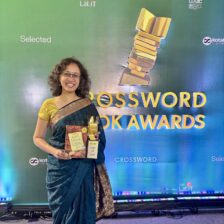
Read them here: Today I Am; What Will Happen?
All kinds of thoughts come to my mind as I think of the term mother language.
I love the fact that so many languages exist.
I love the celebration of language as both art and skill.
Yet, working as I do with children and adults in diverse environments, I can’t help seeing other implications.
On the one hand, celebrating the mother language is a way to understand privilege and language politics. On the other hand, I see children struggling to answer the question of why they don’t speak their mother tongue.
Sometimes it’s because their mother tongue and father tongue are different and speaking one excludes the other parent who, perhaps, does not have the time or mind space to learn a new language.
Sometimes, children come from recomposed families and need to make an active effort to integrate themselves into new structures and languages. What of them?
Language fluency, or the lack of it, is often the cause of shaming and bullying of many kinds. I cannot count the number of times I have been asked why I don’t write in ‘Indian’. Or, in the Indian context, why I don’t write in Hindi or Marathi or Tamil.
Growing up in a Tamil household, I did not see either Hindi or Marathi as a ‘real’ language. I studied in a convent school and went for Bharatanatyam classes to a Tamil teacher, so I spoke English and Tamil – in that order.
When I stepped into college, I stepped out of an insular world. I felt ashamed time and time again for not reading and writing Tamil, and for not speaking Marathi.
Because of the way it was taught, I soon began to speak French better than I spoke Marathi, simply because I like to learn through the framework, through grammar. I enjoyed drawing parallels between English and French, beginning to understand the details of both languages with awe and fascination.
I began to notice shaming more – and how, because English is historically the language of power, those who did not speak English often had a hard time for various reasons. Language was linked to self-worth for too many people.
And on International Mother Language Day, all these things come to the fore because I think they are linked – self-worth, pride and shame. Don’t get me wrong. I do understand that this is precisely why celebrating International Mother Language Day is important. English has been a language of power for so long that it is crucial to work towards attempting to create a sense of self for anyone who believes that they cannot progress without colonial languages.
Yet, the other side of the story is equally important. Perhaps this is an unpopular idea, but sometimes, when I notice how proud people are of their mother tongue and their level of fluency in it, I do see a problem because the corollary of pride is shame.
If I am proud of speaking my mother tongue, and say so, the listener feels shame if they don’t. A school of thinking believes that this is good too, for shame leads to action and people who don’t speak their mother tongue deserve to feel ashamed. I’m sorry, I cannot go there and I will not. Shame leads to too many terrible consequences mentally and emotionally.
You speak your mother tongue? Good. That’s a skill you have because you had the opportunity to cultivate it.
You speak another language? Good. I’m happy for you.
For me, in some contexts, that’s it.
Some didn’t have the opportunity or the environment to learn their mother tongue, and they regret it. Maybe they learn it later, if they have the privilege – for I think it’s worth remembering that time itself is a privilege.

Today I Am; What Will Happen?
Looking at language as both skill and art helps me to understand my relationship with it. A skill is useful, an art is beautiful. Both have their place in our world. I don’t read Tamil fluently. That is to say, I read the alphabet, but I can’t make sense of the words easily.
And you know what? It took a while for me to come to terms with that, but it’s okay. Sometimes, when I feel like I should, I practise. And if you feel like you should, bilingual books are a great way forward.
But if you don’t speak your mother tongue, it’s all right. I really think it is.

Leave a Reply